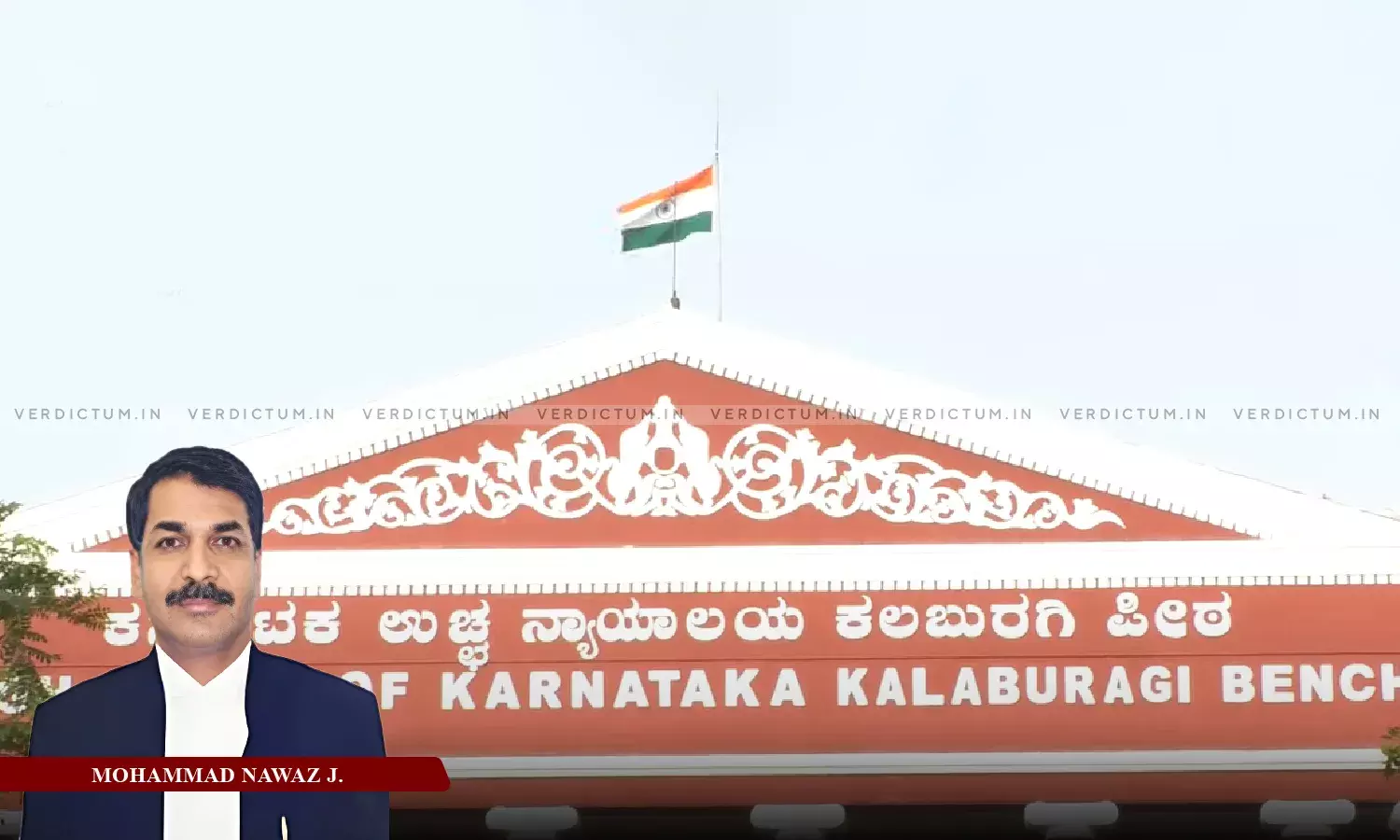Mandatory To Take Assistance Of Interpreter/Special Educator While Recording Statement Of Person With Permanent Mental Or Physical Disability: Karnataka HC

The Karnataka High Court held that it is mandatory to take the assistance of an Interpreter or a Special Educator and for videographing while recording the statement of a person who is temporarily or permanently mentally or physically disabled.
The Petitioner, before the Kalaburagi Bench of the High Court, sought quashing of the statement of the victim recorded by the Magistrate under Section 164 Cr.P.C., and the order dated passed by the Sessions Judge. The Petitioner consequently sought a direction to record the statement of the victim under Section 164 (5A) Cr.P.C. by following the due procedure.
The Single-Judge Bench of Justice Mohammad Nawaz said, “If the statement of a person with permanent mental or physical disability, was not taken following the due procedure contemplated under Section 164 of Cr.P.C. then such statement cannot be considered as statement in lieu of examination-in-chief, as specified under Section 137 of Indian Evidence Act.”
Advocate S. S. Mamadapur represented the Petitioner while HCGP Jamadar Shahabuddin represented the Respondents.
The charge–sheet was filed against the petitioner for offences punishable under Sections 376 (l) and 376 (n) of IPC alleging that he had committed sexual intercourse on a mentally challenged victim and made her pregnant.
In the course of trial, a report was submitted by the Superintendent, Department of Clinical Psychology, Institute of Mental Health and Neuro Sciences, Dharwad, to assess and submit a detailed report regarding the mental condition of the victim. As per the report, the victim was suffering from moderate intellectual disability and therefore, the Court opined that she was not fit to understand the Court proceedings, due to her underlying moderate intellectual disability.
The defence filed a memo stating that the statement of the victim recorded under Section 164 of Cr.P.C. cannot be treated as her evidence, since the proviso to Section 164 (5A) of Cr.P.C., was not complied, and the statement of the victim was not recorded with the assistance of an interpreter or special educator and also not videographed.
The question that arose was under what circumstance a victim, who is temporarily, permanently, mentally or physically disabled, whose statement is recorded under Section 164 of Cr.P.C. could be allowed to cross-examine during trial proceedings, without her evidence being recorded as required under Section 137 of the Indian Evidence Act, 1872.
Referring to Section 164 (5A) (a) of CrPC, the Bench explained that at the time of recording the statement of a person, if the said person is found to be temporarily or permanently, mental or physically disabled, the learned Magistrate shall take the assistance of an interpreter or a special educator and the same shall be videographed, only then it shall be considered as the statement in lieu of examination-in-chief, as specified under Section 137 of the Indian Evidence Act, without which the said statement cannot be considered as statement in lieu of examinationin-chief.
The Bench noticed that in the instant case, admittedly the assistance of an interpreter or special educator was not taken at the time of recording the statement of the victim under section 164 of Cr.P.C. There was no compliance of proviso to (5A) (a) of Section 164 of Cr.P.C.
“In fact, the learned Sessions Judge has observed in the impugned order that the victim has deposed in natural way in her statement recorded under Section 164 of Cr.P.C. and it is not clear as to whether the assistance of an interpreter or special educator was taken or not at the time of recording the said statement and also it is not clear as to whether the recording of statement of CW.4 (victim) was videographed or not. The learned Sessions Judge was not at all right in observing that these aspects can be given suitable consideration while hearing on merits of the case”, it said.
The Court also held, “The proviso to Section 164 (5A) (a) makes it mandatory to take the assistance of an interpreter or a special educator and for videographing while recording the statement of a person who is temporarily or permanently mentally or physically disabled.”
Noting the fact that the said mandatory provision was not followed in the present case, the Bench held that the statement of the victim recorded under Section 164 of Cr.P.C. cannot be considered as statement in lieu of examination-in-chief.
Thus, allowing the Petition, the Bench set aside the impugned order and ordered the Sessions Judge to record the evidence of the victim in accordance with law.
Cause Title:
Appearance:
Petitioner: Advocate S. S. Mamadapur
Respondents: HCGP Jamadar Shahabuddin

